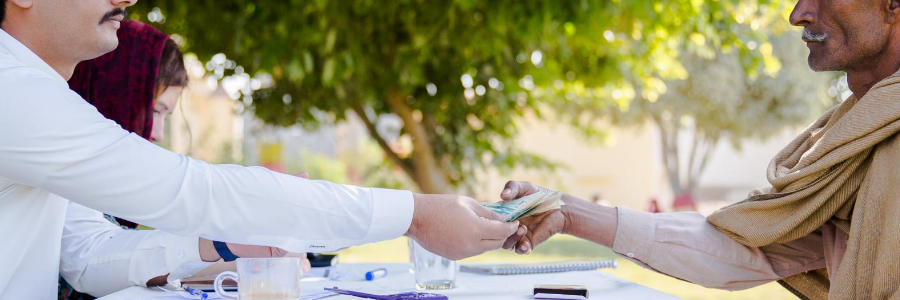WFP is taking first steps to harness blockchain technology to enhance our ability to provide effective, efficient assistance to the people we serve – and save millions of dollars.
Underpinning WFP’s Building Blocks project is blockchain, a cutting-edge technology that could transform the way in which humanitarian agencies deliver aid. Blockchain is a digital ledger technology used as a trusted way to track the ownership of assets without the need for a central authority, which could speed up transactions while lowering the chance of fraud or data mismanagement. Crucially, its peer-to-peer nature removes the need for verification from costly intermediaries such as banks or other institutions.
As a means of addressing the challenge of providing food assistance to over 80 million hungry people worldwide, WFP is taking early steps to harness blockchain technology to be able to deliver assistance more effectively. Building Blocks aims to make WFP’s growing cash-based transfer operations faster, cheaper, and more secure. Full implementation of the technology promises significant cost savings to WFP, and donors alike, potentially totalling millions of dollars per annum. By passing on cost savings, integrating retail innovations such as biometric scanning and mitigating the risk of identity fraud or data mismanagement, WFP could also ensure more people receive crucial food assistance.
With the support of the Innovation Accelerator in 2016, Building Blocks established an early, but robust concept suitable for prototyping in a field environment. Utilising a private fork of the Ethereum blockchain, ‘Building Blocks’ ran a field simulation in January 2017 that tested the technical viability and usability of blockchain. With positive results, the project moved into full-development.
WFP is currently piloting a larger, more robust version of the blockchain system in Azraq Refugee camp in Jordan. Currently, more than 10,000 Syrian refugees redeem their WFP provided assistance on the blockchain-based system. As a result of this pilot, WFP will have a full, in-house record of every transaction that occurs at a particular retailer, ensuring greater security and privacy for our beneficiaries as sensitive data does not have to be shared with third parties such as phone companies. This allows for improved accounting and the reduction of third-party costs.
Original source: WFP.
Posted on 30 October 2017

